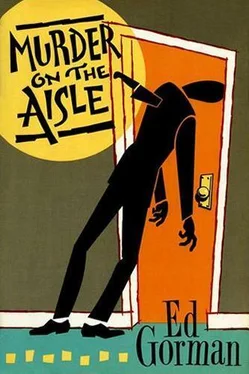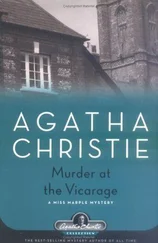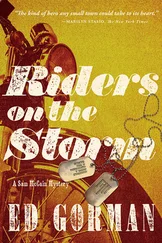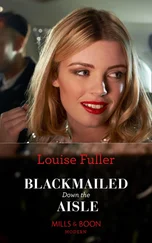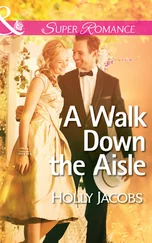“He seems to be hinting that he had something to do with writing the screenplay.”
“He’s a liar.”
Tobin smiled. “I’d like to see you call him that to his face, Michael. You’d keep that plastic surgeon you represent busy for several weeks in the operating room.”
“Richard wrote the screenplay.”
“Ebsen says he’s going to the press unless he’s paid a certain sum of money.”
“I know. He’s been pestering Jane.”
Again Tobin couldn’t help himself. “You don’t have any right to be with her. The man is only one day dead.”
“Her being married didn’t seem to bother you any when you were having your affair.”
Tobin knew he was blushing.
“For shit’s sake, Tobin, do you think it was a secret? Richard knew all along. He thought it would be good for Jane. She hadn’t taken his fame very well — felt very much left behind. Especially when she began to sense that Richard was seeing a lot of other women, which happened to be the case. Did her good to have somebody pay special attention to her. Even if it had to be you.”
There was nothing to say, of course. He felt embarrassed and hollowed out and betrayed by everybody involved, including Jane herself, who now had some indeterminate relationship with Dailey here.
Tobin went back to the reason he’d come here. “Starrett will demand an audit of the books.”
“He can demand anything he wants. It doesn’t mean he’ll get it.”
A buzz on the intercom. Discreet as the earth tones. “Mr. Dailey, it’s the Coast.”
“The Coast. Good.” Dailey nodded to the phone. “That concludes the interview part of our show,” he said to Tobin. “Don’t think it hasn’t been fun.”
“Let me give you a word of advice. If you’re playing games with Harold Ebsen, you’d better be careful. He’s a very dangerous guy.”
Dailey smiled. “Thanks so much, Tobin. You know how much I value advice coming from you.”
Tobin left.
1:04 P.M.
Jeff Bridges said, “It isn’t my fault I’m cross-eyed.” Then he crossed his eyes and made Helen Slater, who had previously been mad at him, laugh. It was good teaming, Bridges and Slater (God, but she had a good clean beautiful uncomplicated face), and for a time Tobin sat in the darkness of the screening room dreaming teenage dreams again (all about meeting Helen Slater and being puppy-love happy walking down the golden winter streets with her). And then it was all over, the credits rolling while the rock tie-in song played, and he knew it had been a good movie (a murder mystery set in an advertising agency) because he didn’t want it to end.
In the lobby afterward, Chamales came up and offered himself yet again as Tobin’s TV partner. Tobin said, “We’ll have to look into that, won’t we?” Then a critic named Swenson who did pieces on action stars for magazines that featured the trade secrets of gore movies’ special effects appeared. As always, he was dressed in a bush jacket and wore mirror sunglasses. He was a half inch shorter than Tobin. A bloody goddamn midget.
“Piece of shit,” he said.
“I’m giving it four stars,” Tobin said.
“I’m going to give it five,” Chamales said, patting his girth, which was today swaddled in a red turtleneck sweater that gave him the appearance of a globe on legs.
“Pretentious,” Swenson said. “Too much talk.”
“Believe it or not, Swenson, more people talk than get into car chases or get chased by monsters,” Tobin said.
“At least they could have had more cleavage,” Swenson said.
All Tobin could do was shake his head. In a column once (true story) Swenson had attacked Fellini’s Amarcord as a perfect example of why the United States shouldn’t import movies but should only “show things produced right here in the good ole U.S.A.” He had gone on to say that Amarcord could have used a little “Roger Corman magic.” Tobin assumed that some night he and Swenson would get drunk together and then Tobin would beat his face in.
“So how do you think you’re going to like your new boss?”
Tobin said, “What new boss?”
“Pennco. You haven’t heard? Emory’s selling the company to them,” Swenson said. Pennco was the second-largest television syndicator in the world.
He hadn’t heard about the movie script. He hadn’t heard about Michael Dailey and Jane Dunphy being lovers. And now he hadn’t heard about Frank Emory, whom he considered not only a boss but a friend, selling the company.
“You sure?”
“Hell, yes. It’s all over the bars.” Swenson smiled. “Pennco is wall-to-wall jerks.”
“So I’ve heard.”
“Maybe I can get you some gigs on the magazines I work for. In case things don’t work out for you, I mean.”
Tobin saw that, even though they didn’t get along, Swenson was seriously trying to help him. Then of course Tobin felt like shit for thinking all those rotten things about Swenson who, despite his execrable taste in films, had turned out to be a rare type of person — a charitable man.
“Maybe I’ll take you up on that,” Tobin said. But he was strictly on autopilot. His mind was imploding. Jane having an affair with Dailey. Frank Emory selling the company.
“Well, I’m kind of late for an appointment,” Tobin muttered. “I’ll see you later.”
“Have a good holiday,” Chamales said.
Tobin clapped them both on the shoulders — as if they were the best friends he had in the world (as they damn well might be, considering everything that was going on) — then found the elevators and went downstairs.
“I take it you know who this is?” Neely said.
“Sure he does,” Huggins said.
Neely said, “I’ve been calling all over fuck for you, Tobin. Huggins here has been trying to locate you.”
This was a wonderful place for a conversation. Right outside the Brill Building. Freezing your ass off. People walking by and staring. And a Santa Claus with hostile eyes thinking hostile thoughts about everybody who passed by him.
“I’ve got some bad news for you, Tobin,” Huggins said. He still looked like Frog Face McGraw, though you wouldn’t have thought Frog Face was the kind of kid who would grow up to wear blue cashmere topcoats and spend the cost of a good dinner at the Four Seasons on a haircut.
“Gee, that’s what I’d like. Some more bad news.”
“He thinks he’s broken your alibi,” Neely said. “That’s why I wanted to be here.”
“Shut up,” Huggins said to Neely. “I’m doing the talking.”
Neely gave Huggins his best kicked-dog expression and then over his shoulder flashed a little yellow thing he had in his hand and sort of waved it at Tobin. Great, Tobin thought. I’m standing here getting busted by a cop and my lawyer is toking on a joint.
Neely took some marijuana in deep and then expelled it with great luxury. He smiled a 1968 smile at Tobin.
Huggins faced Tobin, so he saw none of this. “After talking with the stagehand and with Jane Dunphy,” he said, “I realized there was a fairly long period there when you were alone. The first time I interviewed the stagehand, he tried to make it sound like you were alone just a minute or two.”
“So?”
“So you could easily have gone down the hall to your dressing room and stabbed him.”
“And just why would I do this?”
Huggins shook his sleek head. “Are you kidding me, Tobin? You really wonder if we got you on motive?” He counted the motives off on his calfskin-gloved fingers. “One, he wouldn’t sign his contract — and that would put you out on the street. Two, you, were having an affair with his wife. Three, you’d gotten into an argument with him that was so bad you punched it out while the tape rolled.”
Читать дальше
